
Prunus laurocerasus Mano Prunus střemcha stálezelené Zahradnictví Franc
Commonly known as Cherry Laurel or English Laurel, Prunus laurocerasus is a vigorous, broad, spreading evergreen shrub prized for its dense, glossy foliage and creamy-white flowers. Prunus laurocerasus: An In-depth Look Cherry Laurel belongs to the Prunus genus, including apricot, cherry, peach, or almond trees.

Laurbaerkirsebaer Mano (Prunus laurocerasus 'Mano')
The large, glossy dark green leaves cloak the very compact, broadly spreading form. Lovely when in full bloom, with clusters of tiny yet highly fragrant white flowers perfuming the garden. Water when top 2 inches of soil is dry. Slow growing; reaches 6 to 8 ft. tall and wide.
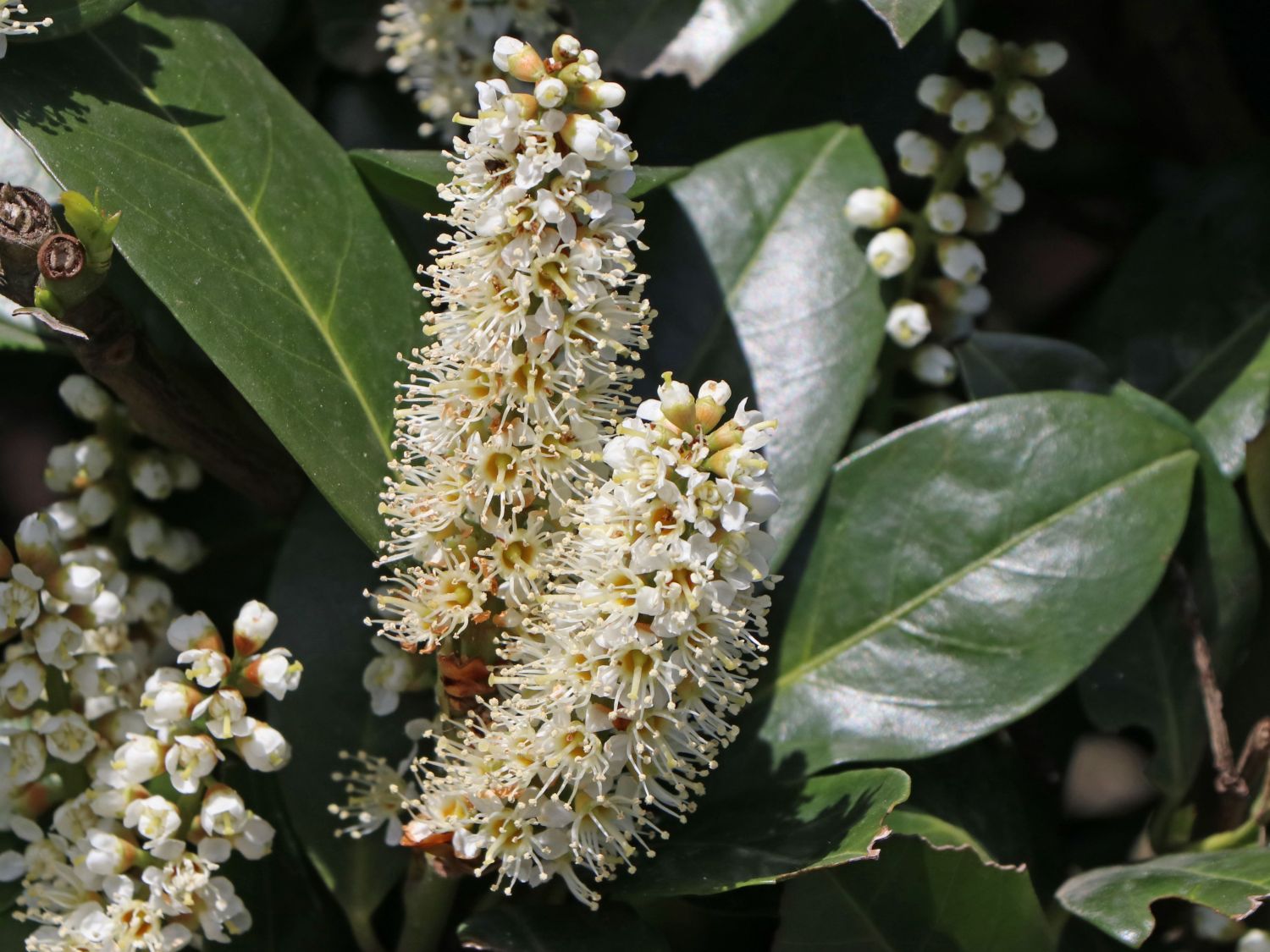
Kirschlorbeer / Lorbeerkirsche 'Mano' Prunus laurocerasus 'Mano' Baumschule Horstmann
Prunus laurocerasus is a vigorous shrub with a dense, bushy bearing that, over time, spreads outwards slowly. The evergreen leaves are large (up to 6 inches/15 cm), with a fabulous shiny dark green color. In spring, small white clusters of flowers appear. Within days, shiny red berries follow suit, somewhat similar in appearance to cherries.
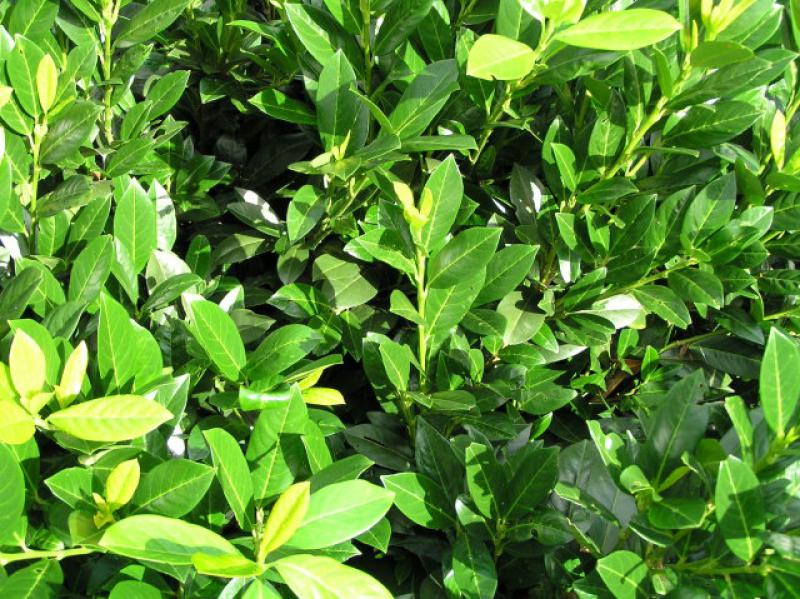
Kirschlorbeer Mano, Prunus laurocerasus Mano bei der Markenbaumschule bestellen!
Prunus laurocerasus L. Prunus laurocerasus. First published in Sp. Pl.: 474 (1753) This species is accepted. The native range of this species is SE. Europe to Iran. It is a tree. Taxonomy. Images.
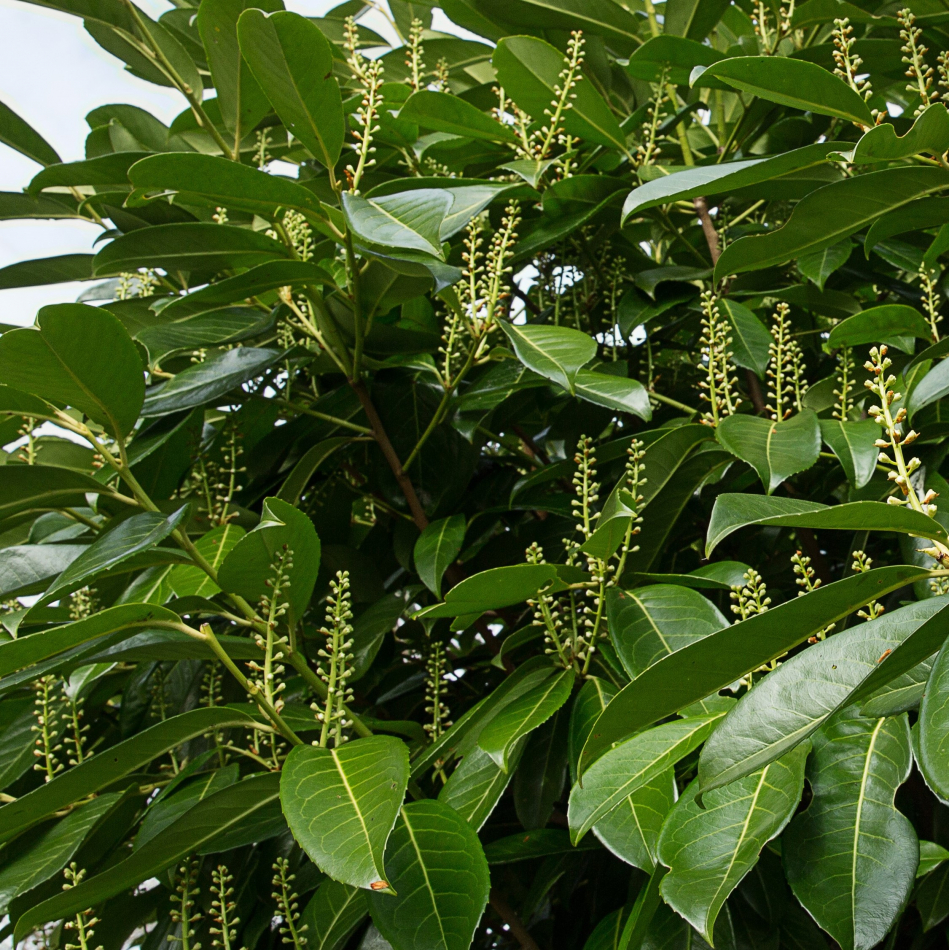
Lagerhägg, Prunus laurocerasus 'Mano' [DOM
Prunus laurocerasus Common name: Cherry Laurel English Laurel Pronunciation: PROO-nus lar-o-ser-A-sus Family: Rosaceae Genus: Prunus Type: Broadleaf Native to (or naturalized in) Oregon: No Broadleaf evergreen shrub/tree, 10-20 ft (3-6 m), wide spreading, dense, coarse-texture, vigorous.
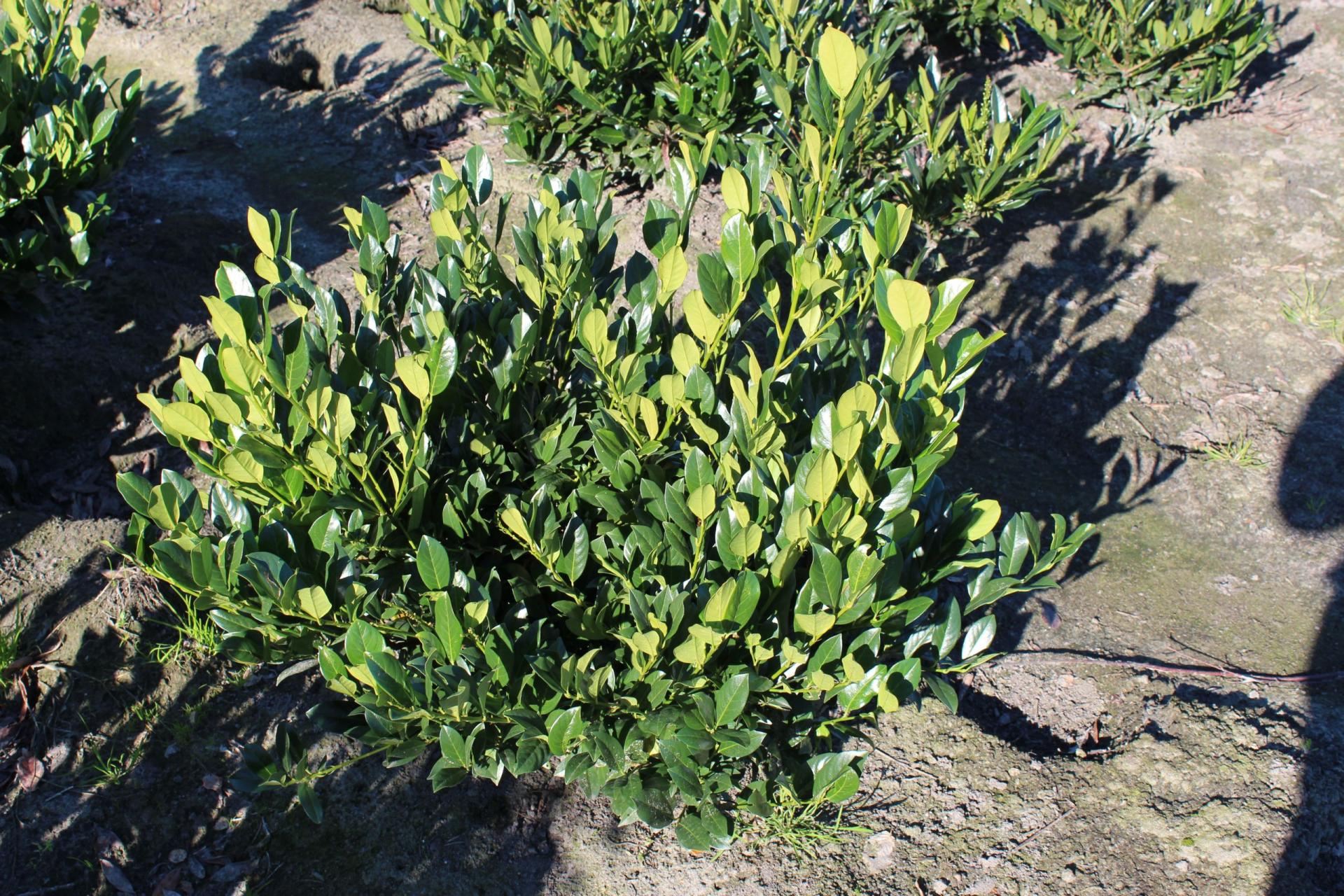
Prunus laurocerasus 'Mano', Prunus laurocerasus 'Mano'
Mano is one of the best cherry laurel varieties for growing as a standard tree. It naturally forms a compact, globose crown that doesn't need to be pruned to look good. The leaves are deep green, broadly elliptic and glossy. In May appear plentiful of erect racemes composed of small, creamy white, fragrant flowers that are followed by purple.

Kirsebærlaurbær Prunus laurocerasus 'Mano' 80 cm 8590.2
Family: Rosaceae Native Range: Southern Europe, southwestern Asia Zone: 6 to 8 Height: 10.00 to 18.00 feet Spread: 20.00 to 25.00 feet Bloom Time: April to May Bloom Description: Creamy white Sun: Full sun to part shade Water: Medium Maintenance: Low Suggested Use: Hedge Flower: Showy, Fragrant Leaf: Evergreen Attracts: Birds Fruit: Showy
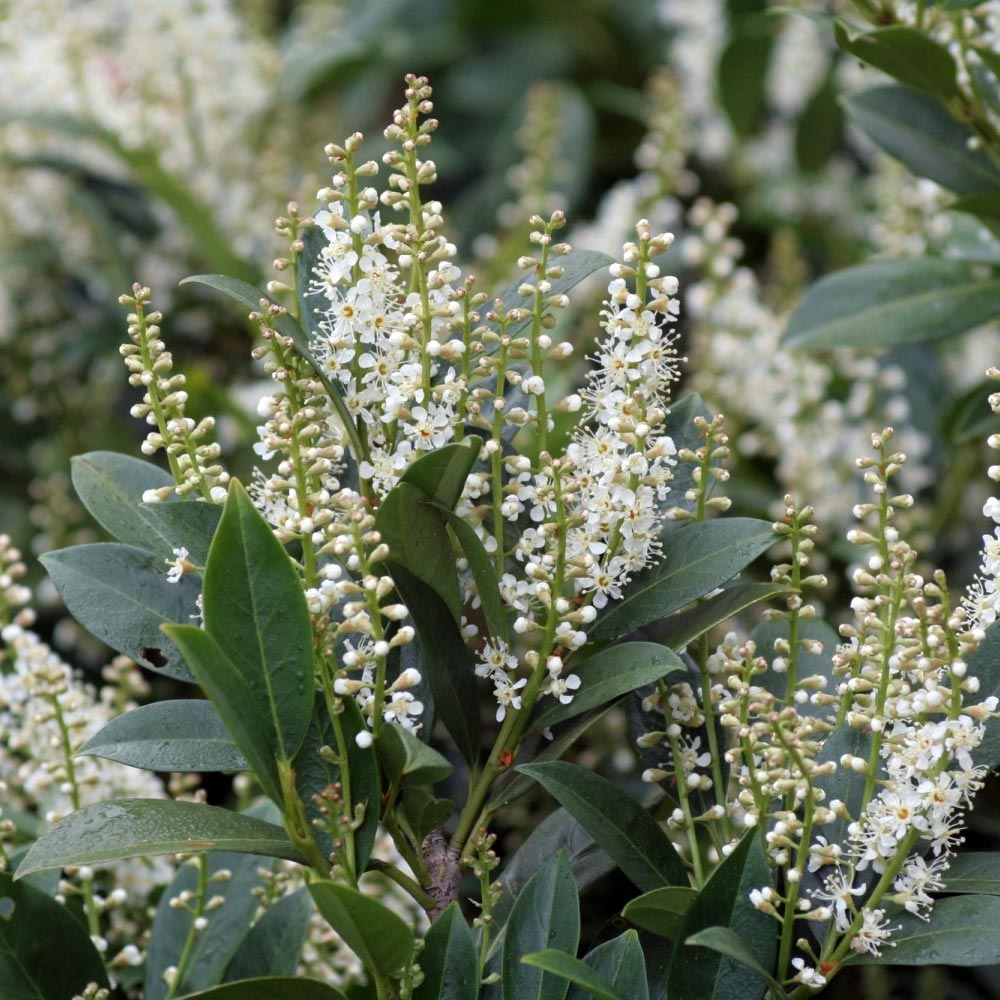
Prunus laurocerasus Mano Laurier Cerise à port compact et large
Prunus Species: laurocerasus Family: Rosaceae Life Cycle: Woody Country Or Region Of Origin: Europe Distribution: CA, OR, WA, British Columbia Wildlife Value: This is a larval host plant to Eastern Tiger Swallowtail (Papilio glaucus). You may see three flights from February-November in the deep south and two flights from May-September in the north.
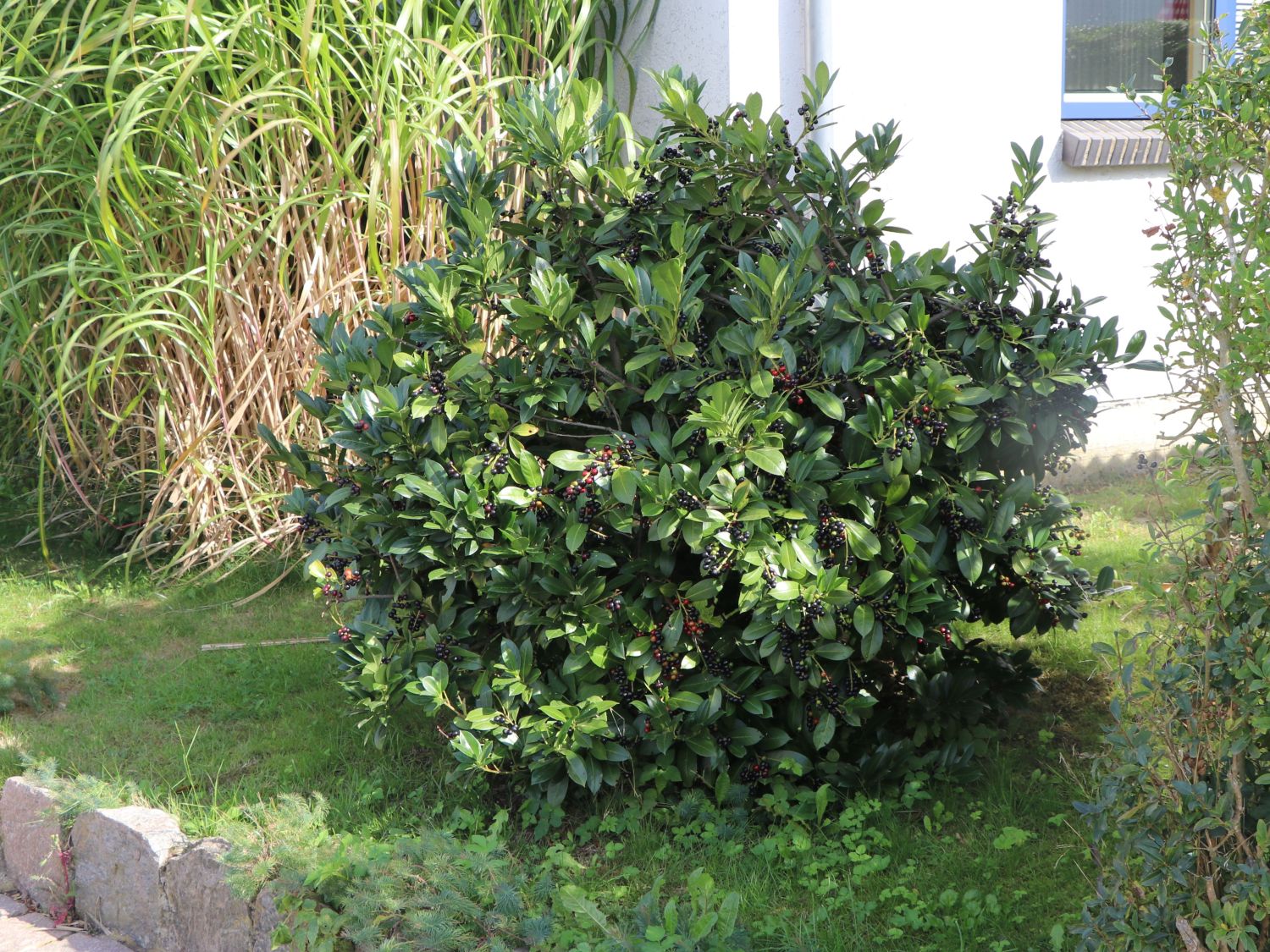
Kirschlorbeer / Lorbeerkirsche 'Mano' Prunus laurocerasus 'Mano' Baumschule Horstmann
The genus name, Prunus, is Latin for cherry or plum. The epithet, laurocerasus, means laurel cherry because of its laurel-like or evergreen leaves and cherry-like fruits. This cultivar is best planted in full sun to partial shade, moist, well-drained, loamy soils. It tolerates shade and prefers it in hotter climates.

Prunus laurocerasus 'Mano'
Prunus laurocerasus 'Mano' Tento stálezelený keř pochází z čeledi Rosaceae - růžovité a rodu Prunus. Dorůstá do výšky 1,5-3 m a vytváří hustý, kulovitý keř. Velice často se roubuje na kmínek, právě kvůli své husté, souměrné koruně. Listy jsou… Vše o produktu Nároky na slunce Slunce Polostín Nároky na vláhu Vlhká Polo suchá Kvete v měsících
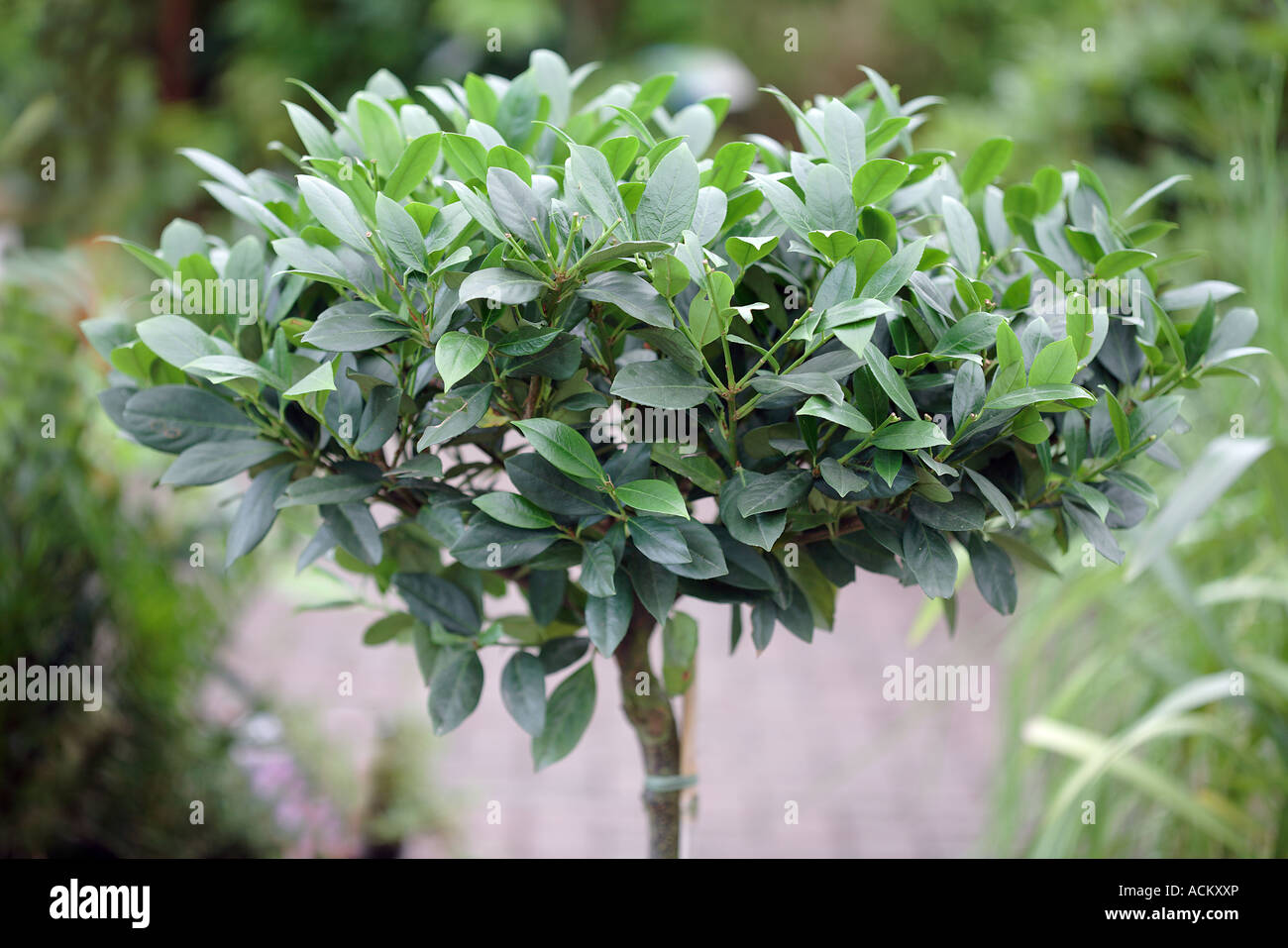
Prunus Laurocerasus Mano Laurel Stock Photo, Royalty Free Image 13183389 Alamy
Genus description. Prunus can be deciduous or evergreen trees or shrubs with showy flowers in spring, and often good autumn foliage colour. Some have edible fruit in autumn, and a few species have ornamental bark. Name status. Accepted. Advertise here. Find help & information on Prunus laurocerasus 'Mano' from the RHS.

Prunus laurocerasus Mano Prunus střemcha stálezelené Zahradnictví Franc
Cherry laurel plants can be propagated through stem cuttings. The cuttings can be planted and watered in a sheltered spot in the garden for the best growth. Here's how: What You'll Need: Healthy laurel plant, scissors, plastic bag, soilless potting mix, containers, rooting hormone (optional) Where to Cut: Cut with scissors just below a node.

Prunus laurocerasus Mano Prunus střemcha, sakura Zahradnictví Franc
Their size is about 6x3 cm, obovate shape which makes it look different from most of cherry laurels. The shrub grows bushy from the ground, and is densely branched without pruning. Though you can trim or clip it to keep a certain shape. It is quite hardy but dislikes winter sun that might cause damage during heavy frost spells.

Prunus laurocerasus Mano Laurier Cerise à port compact et large
To propagate a cherry laurel shrub through stem cuttings, take a sharp knife and cut the last 5-6 inches (12-15 cm) of a branch. Remove the extra leaves from the bottom and keep the top three or four intact. Cut the bottom part of the main stem at an angle and wrap it in damp paper towels and a plastic bag.
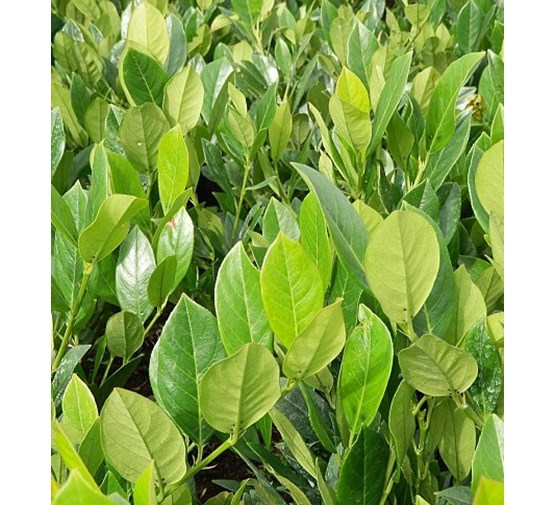
prunus laurocerasus 'mano' Tuincentrum Pelckmans
Prunus laurocerasus 'Mano' (Cherry laurel 'Mano') ShootChecker™ STOP: Make sure you get the "Right Plant, Right Place." 90% of plants die because they were the wrong plant choice. Shoot helps you to save valuable time and money to get the right plant choices for any garden. Find out how Add to plant list 1 of 1 Variety or Cultivar
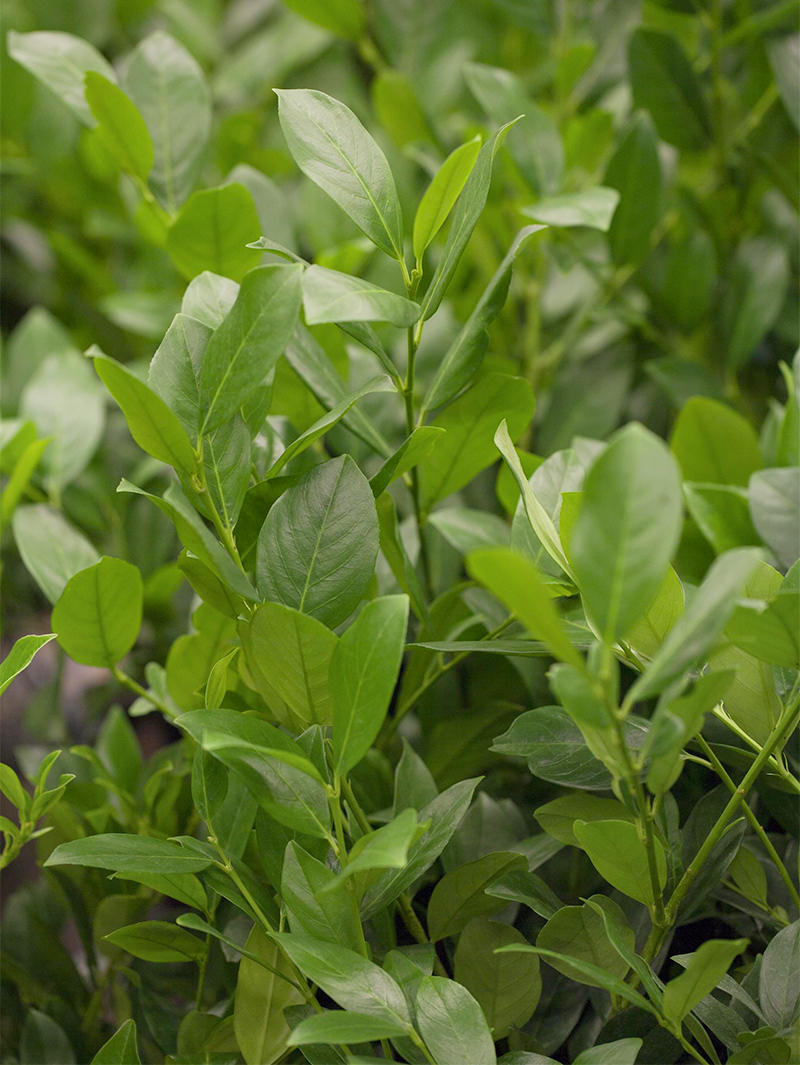
Kirschlorbeer Mano kaufen Garten von Ehren Qualität seit 1865 Garten von Ehren
Prunus laurocerasus is an evergreen Shrub growing to 6 m (19ft) by 10 m (32ft) at a medium rate. See above for USDA hardiness. It is hardy to UK zone 7. It is in leaf all year, in flower from April to June, and the seeds ripen in September. The species is hermaphrodite (has both male and female organs) and is pollinated by Bees, Lepidoptera (Moths & Butterflies).